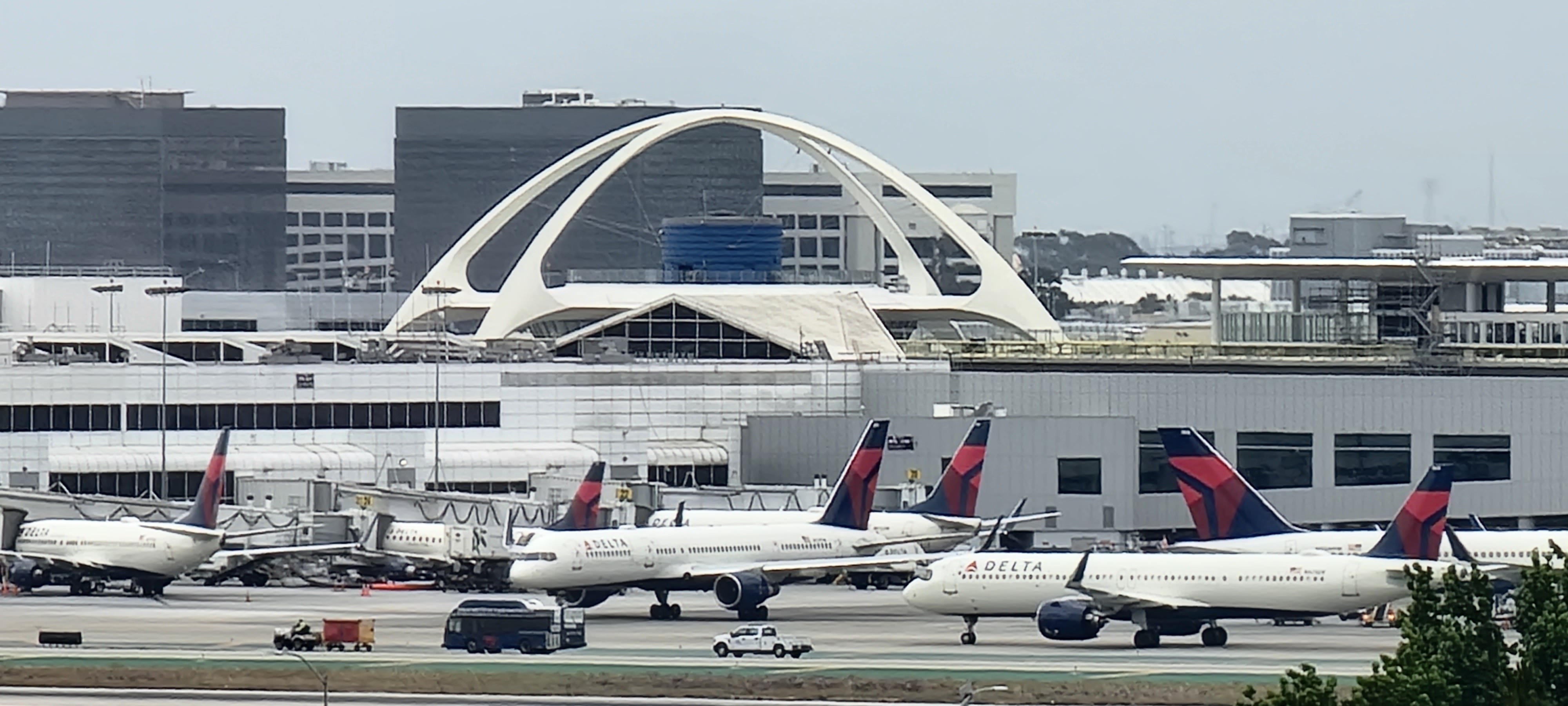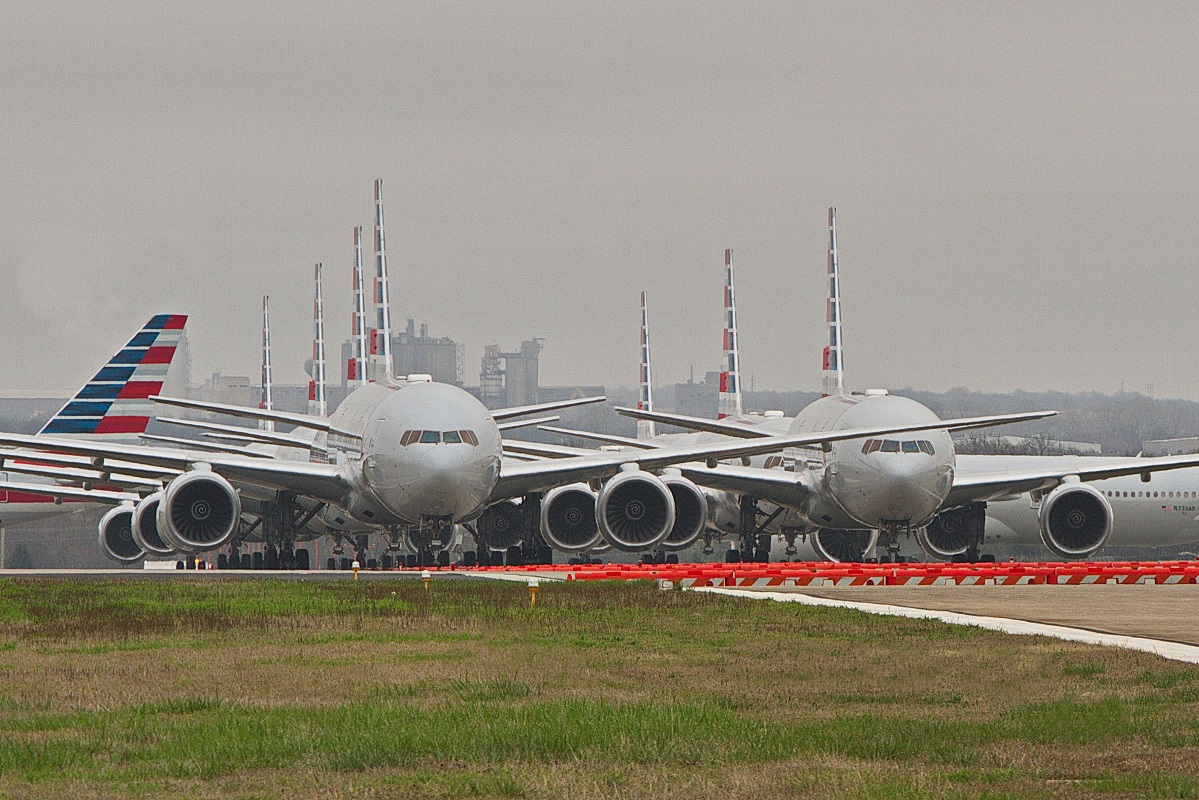Aeroflot low cost carrier Pobeda ran one of the strangest in-cabin experiments we’ve seen: a humanoid robot acting as a flight attendant on a regular passenger flight. The airline put “Volodya” on a Boeing 737 flight from Ulyanovsk to Moscow and had it interact with passengers onboard.
Here’s what the robot actually did:
- Greeted passengers during boarding.
- Checked boarding passes in some footage.
- Performed a limited safety-demo routine using pre-programmed gestures.
- Walked the aisle and interacted with passengers.
- Sat down for takeoff and landing like everyone else.
Volodya didn’t handle service, safety responsibilities, turbulence procedures, or any task that requires judgment. Human crew ran the flight exactly as normal. Pobeda says this was a technology demonstration, supervised by flight attendants.
Flight attendants are pushing back, pointing out that robots aren’t going to break up an inflight altercation or manage a decompression event (but why not?). Tech advocates countered that this is exactly how automation enters the cabin: quietly, experimentally, on low-stakes duties.
The current Volodya – a ‘Unitree G1’ – is relatively agile and expressive, but it’s a lightweight platform that isn’t capable of reliably staying upright in turbulence. But it makes questions about what jobs AI robots are coming for more focal. United Airlines already has 8% of management jobs on the chopping block thanks to AI.
At airlines it seems displacement is especially likely to occur:
- Contact center / reservations / social care. A large share of chats, emails, and calls finally get handled by computer and customers won’t know the difference. Rebookings within fare rules can easily be handled this way, not just seat changes, baggage tracking, and issuing vouchers during irregular operations. Only edge cases will need escalation.
- Back office operations from accounts payable and receivable to revenue accounting, document extraction and simple actions will have machines replacing agents manually keying things in and doing first line review. Already “offers & orders”/modern retailing pushes automation in revenue processes.
- Marketing/CRM/loyalty servicing. An area closest to my own heart, drafting marketing copy, segmenting customer lists, and handling everything from FAQs to terms and conditions should be handled primarily by AI. Humans will focus on partnerships, while GenAI will measure campaign performance.
- Revenue management analysts. Delta already says that this is happening so that prices update on a virtually continuous basis. Human revenue management, in their telling, has been a bottleneck. Computers do better at demand forecasting and pricing, with humans shifting into broader strategy and guardrails on the AI’s price-setting. Politics is a barrier here with concerns over individually-tailored prices though concerns here, at least in the medium-term, are largely overblown.

- Network planning & schedule optimization. Figuring out how to optimize aircraft utilization, and how to handle this against fleet maintenance, airport curfews, and network connectivity will be better done by computers.

- Crew pairing/rostering and disruption recovery. When Southwest melted down at Christmas 2022, their binding constraint was compute. So, too, with Delta trying to recover from the Crowdstrike meltdown. They couldn’t rebuild their schedules. Southwest operated at a portion of its schedul efor days as they handled re-pairing crews with flights manually. Combinatorial solvers and learning systems will optimize this in minutes, while internalizing union work rules.

- Maintenance planning & technical publications search. Shifting to predictive maintenance and tracking will mean fewer maintenance analysts. It won’t mean less maintenance, and probably not fewer maintenance techs – for awhile – given the long aircraft replacement cycle.

This doesn’t even get into airport operations and gate management, baggage and virtually any activity on the ramp where it’s ultimately robots that may replace people.
Yet replacing flight attendants with robots hardly seems a great use case for Elon’s robot army that justifies his recently-approved ‘up to $1 trillion’ pay package. Flight attendant labor is relatively low cost.
- The robots won’t be great at social interaction (though the bar here on some airlines is quite low).
- The reason airlines employ so many flight attendants is regulation. U.S. carriers are required to have one cabin crew member per 50 seats in most cases. Regulation won’t allow replacing human flight attendants with robots any time soon, and certainly evacuation studies using robots as human replacements haven’t happened yet.
The truth is that the jobs that will disappear first are lucrative upper middle class jobs. AI will easily replace much of consulting, finance, and law before it replaces plumbers and carpenters. And government will slow down this process – requiring two pilots in the cockpit long after an AI co-pilot is safer than a human one.
And AI will mean more jobs. As Tyler Cowen points out on Odd Lots, as people live longer they’ll consumer more healthcare and that will support more health care jobs. As AI discovers more medical treatments, biotechnology will have more jobs in testing.
Ultimately there will be jobs, but the jobs will be different. AI will lead to great disruptions, though much of it will happen slowly both for technological reasons (we need cheap models companies can run themselves before they truly replace lawyers and doctors) and for regulatory reasons.
Robots are the mechanism that it eventually comes for human labor. Of course none of this is new. Robots have been used in manufacturing since 1961! The General Motors Uniate was the first industrial robot. And technology has disrupted work since long before the industrial revolution.
And ultimately that’s a good thing. There’s always something for creative humanity to accomplish. The more we can be lifted out of mundane tasks and mere survival, the better for all of us. There may be some people who simply can’t outcompete robots, but we’ll still have use (comparative advantage) until the cost to produce those robots is zero. And when that time comes hundreds of years in the future such people will transition to a life of leisure. That changes what it means to be human. That’s not the world anyone currently in the workforce seems likely to experience – even as the well-worn paths to prosperity shift and cause great consternation.


In 20 years humanoid robots will take the place of many jobs. Anything that can be programmed to follow a script of that can be done with relatively basic judgement is a candidate. Tesla alone is targeting a million humanoid robots to be built. As someone that spent his career in IT I’m all for it. Progress, efficiency, cost effectiveness and productivity will drive implementation, not individual’s concerns or fears so quickly understand the future and adapt.
Frankly I’m glad I’m retired and I have wealth to leave my kids which makes sure their future is set. It will be a tough time for a lot of people when many jobs disappear between robots and AI engines. Even many medical, research, technology, finance and legal jobs will be displaced by AI
Yeah – anyone who thinks that AI will replace all those jobs in the next five years either has money invested in tech or has an unhealthy interest in Elon Musk.
AI may be worthwhile in the future, but in the present it is triggering massive layoffs while every system it ‘improves’ is objectively worse. Alexa no longer can answer questions well. Every phone call to a company is a fight with an incompetent AI.
Notice, what they are replacing with AI is not sales (which business likes) but their complaint lines, help lines and everything it thinks is important to us but not to the short term needs of the business.
AI is being flogged by arrogant tech bros who know coding, so in the vein of when all you have is a hammer, everything looks like it could be improved by AI.
But that has no basis in reality, because those tech bros have no idea what the jobs they are predicting will be replaced actually involve.
Case in point – one of Hyatt’s hotels in FL has a lobby fully under construction and also failed to have a room for us. I tried to get help from Hyatt – but just got a series of useless AI generated emails which provided no help whatsoever. Hyatt will lose out on 60-70 hotel nights next year, because I’ve given up on Hyatt. Marriott isn’t great, but still better, at least if you don’t have an important booking with Sonder.
There is AI slop out there and I see/deal with it every day. On par it will destroy more jobs than create. It will also cause subpar customer service but given the cost advantage don’t expect the C level to really notice.
It should be great in the future when robots take over a lot of flight attendant jobs.
Every generation has a cadre of folks who, like previous generations, ignore the lesson of the past: technological advances that one thinks will lead to high unemployment don’t. Luddites exist all the time and die thinking they will eventually be right.
@ This comes to mind — Also ignored by every generation is the fact that markets are periodically overheated and will crash. Hold on tight, we are almost to crash.
Contrary to what the C-suite thinks, people actually enjoy service from othe people. A robot, probably not so much. Having robot flight attendants will definitely make travel less enjoyable, so people will stay home much more. It is a two-way street.
Train robots to efficiently clean the planes.
Why would it take up aisle space as a bipedal humanoid? They should just mount a torso and web of arms to a rail on the ceiling.
But we have been through this before as new technologies replace human jobs. (Where are the flight engineers today, let alone navigators and airborne or ship radio officers?) An outstanding example was when powered looms replaced the hand crofters in late 18th century Britain. A huge number of people, compounded by the enclosures of small farms for sheep raising, were kicked out and ended up in hellish factories and miserable cities. Production increased and eventually everyone did better, but it took about two generations of lousy conditions and major social unrest to get there.
Obviously this can’t sort of thing cannot be stopped. The Luddites tried to destroy the looms and had no more luck than the people today who want to halt AI will have (good luck getting places like China, India, North Korea or Russia, or somebody experimenting in a basement, to go along with that). And on the other hand Musk’s idea that in another generation we’ll have a world of peace and prosperity from this technology seems equally unrealistic.
But what can be done is to plan for the elimination and creation of new jobs to make the transition as easy as possible. (The same could be done for other industries like, say, coal mining.) Encouraging and supporting education for the future, planned development of certain areas and cities and so on is possible even if politically very difficult in America. But we can remember that even when Britain was going through some of the worst of its industrial revolution a few factory owners tried to have decent conditions for their workers. And we can do better than that today.
When Delta Air Lines uses humanoid robots to replace its flight attendants on regular passenger flights and the robots serve pre-departure beverages to all, Delta might truly become a premium airline.
AA should use these….you might actually get good service onboard.
Now is the time to work out an appropriate robot tax methodology. Money collected could be used for retraining, social insurance, etc.
Attended a legal AI conference: the most telling remark was we achieve a great leap in productivity and then give most of it back verifying. I have had AI cite cases that don’t exist. Given the vast sums being invested in this bubble, actual returns on investment appear minimal. And more health care jobs will just increase the national debt. But Gary is one of those Pollyanas who believe life gets better. He is wrong.